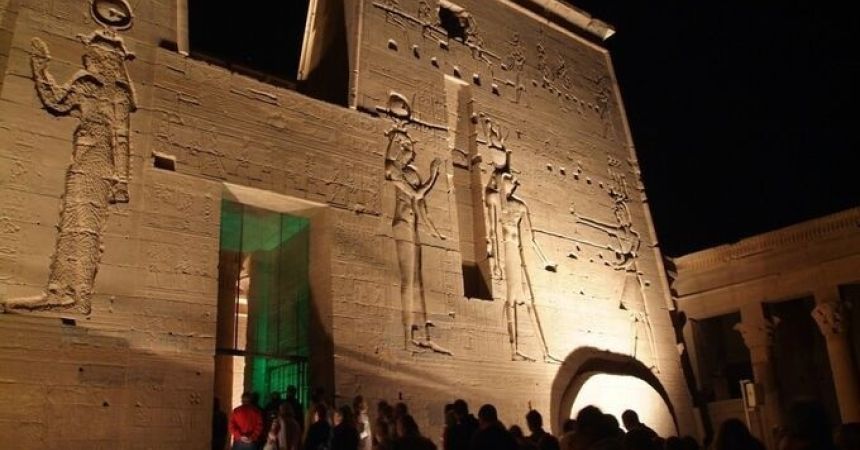
How Many Days Do You Need to Tour Cairo?
Cairo, the sprawling capital of Egypt, is a city where ancient history and modern life blend seamlessly, creating an atmosphere rich with cultural, historical, and sensory experiences. From the towering pyramids of Giza to the bustling markets of Khan El Khalili, Cairo offers a myriad of attractions that cater to various interests. The question of how many days are needed to truly experience Cairo is not a one-size-fits-all answer, as it depends on your pace of travel, interests, and whether you plan to explore nearby areas. However, this guide will break down what you can expect to see and do in Cairo over different lengths of stay, ranging from a brief two-day visit to an in-depth week-long exploration.
Perfect Duration for Touring Cairo City
Day 1: Introduction to Cairo's Ancient Wonders
Morning: The Pyramids of Giza Start your Cairo adventure with one of the most iconic landmarks in the world—the Pyramids of Giza. Located just outside the city, the Giza Plateau is home to the Great Pyramid of Khufu, the Pyramid of Khafre, the Pyramid of Menkaure, and the enigmatic Sphinx. A half-day visit is typically enough to explore these ancient wonders, but if you’re particularly interested in Egyptology, you might want to allocate more time to delve deeper into their history. Hiring a knowledgeable guide can greatly enhance your experience, providing insights into the architectural brilliance and cultural significance of these monuments.
Afternoon: The Egyptian Museum After exploring the pyramids, head back into Cairo to visit the Egyptian Museum. Situated in Tahrir Square, this museum houses an extensive collection of ancient Egyptian artifacts, including the treasures of Tutankhamun, mummies, statues, and everyday items from ancient times. Plan to spend at least 2-3 hours here to fully appreciate the breadth of the collection. The museum is an excellent way to gain a deeper understanding of the artifacts you've seen in the morning at Giza.
Evening: Nile River Cruise Cap off your first day in Cairo with a relaxing cruise on the Nile River. Many operators offer dinner cruises that include traditional Egyptian cuisine and live entertainment, such as belly dancing and Tanoura shows. The views of the Cairo skyline at night, with the city’s lights reflecting on the Nile, create a magical end to your day.
Day 2: Cairo’s Religious and Cultural Heritage
Morning: Islamic Cairo and the Citadel Dedicate your second day to exploring Islamic Cairo, a district filled with mosques, madrasas, and historic buildings that showcase the city’s rich Islamic heritage. Start your morning at the Citadel of Saladin, a fortress built in the 12th century that offers panoramic views of the city. Within the Citadel, visit the Mosque of Muhammad Ali, also known as the Alabaster Mosque, a stunning structure with Ottoman influences.
Afternoon: Sultan Hassan and Al-Rifa'i Mosques After leaving the Citadel, head to the nearby Sultan Hassan Mosque, an architectural masterpiece that dates back to the 14th century. Across from it is the Al-Rifa'i Mosque, where members of the Egyptian royal family and other notable figures are buried. These mosques are prime examples of Islamic architecture and are less crowded than the more famous sites, offering a peaceful environment for reflection.
Evening: Khan El Khalili Bazaar In the evening, immerse yourself in the vibrant atmosphere of Khan El Khalili, Cairo’s most famous bazaar. The labyrinthine alleys are filled with shops selling everything from spices and jewelry to traditional handicrafts and souvenirs. The bazaar is also home to historic coffeehouses like El Fishawi, where you can relax with a cup of tea and watch the world go by. Don’t miss the opportunity to haggle with shopkeepers for the best prices—it’s all part of the experience!
Day 3: Coptic Cairo and Modern Marvels
Morning: Coptic Cairo On your third day, explore Coptic Cairo, the oldest part of the city and a key area for understanding Egypt’s Christian heritage. Start at the Hanging Church, one of the oldest churches in Egypt, known for its beautiful icons and intricate woodwork. Nearby, visit the Church of St. Sergius and Bacchus, believed to be built on the spot where the Holy Family rested during their flight into Egypt. Also worth visiting is the Ben Ezra Synagogue, which adds to the district’s rich tapestry of religious history.
Afternoon: The National Museum of Egyptian Civilization (NMEC) In the afternoon, visit the National Museum of Egyptian Civilization, a newer museum that provides a comprehensive overview of Egyptian history from prehistoric times to the present day. The museum’s Royal Mummies Hall is a highlight, featuring the mummified remains of some of Egypt’s most famous pharaohs. The NMEC is less crowded than the Egyptian Museum and offers a more modern and interactive experience.
Evening: Zamalek and Cairo Tower End your day in the upscale district of Zamalek, located on Gezira Island in the Nile. This area is known for its leafy streets, elegant buildings, and vibrant cultural scene. Visit the Cairo Tower, the tallest structure in North Africa, for breathtaking views of the city, especially at sunset. Zamalek is also home to a variety of restaurants, cafes, and art galleries, making it a great place to unwind in the evening.
Day 4: Day Trips and Extended Exploration
Morning: Saqqara and Dahshur If you have more time in Cairo, consider a day trip to Saqqara and Dahshur, located about 30 kilometers south of the city. Saqqara is home to the Step Pyramid of Djoser, the oldest pyramid in Egypt and a precursor to the more famous pyramids of Giza. Dahshur, on the other hand, features the Bent Pyramid and the Red Pyramid, both built by Pharaoh Sneferu. These sites are less crowded than Giza and offer a fascinating glimpse into the early development of pyramid construction.
Afternoon: Memphis On your way back to Cairo, stop by the ancient city of Memphis, the capital of Old Kingdom Egypt. Although little remains of this once-great city, the open-air museum here is worth a visit, especially to see the massive statue of Ramses II.
Evening: Relaxation or Local Experiences After a day of exploring, you might want to relax in your hotel or take part in a local experience, such as a traditional Egyptian cooking class or a visit to a hammam (traditional bathhouse). These activities provide a more personal connection to Egyptian culture and are a great way to unwind.

Day 5: Art, Culture, and Shopping
Morning: Museum of Islamic Art Start your fifth day at the Museum of Islamic Art, which houses one of the most extensive collections of Islamic artifacts in the world. The museum’s exhibits include ceramics, textiles, manuscripts, and other items that showcase the artistic achievements of the Islamic world.
Afternoon: Al-Azhar Park In the afternoon, visit Al-Azhar Park, a beautifully landscaped area that offers stunning views of the Cairo skyline, including the Citadel. The park is a great place to relax and enjoy the greenery, and it also features several cafes and restaurants where you can have lunch.
Evening: Cairo Opera House For a dose of modern Egyptian culture, spend your evening at the Cairo Opera House, located in Zamalek. The opera house hosts a variety of performances, including opera, ballet, classical music, and contemporary dance. Check the schedule in advance to see what’s on during your visit.
Day 6: Discovering Cairo’s Hidden Gems
Morning: Al-Muizz Street Al-Muizz Street, located in the heart of Islamic Cairo, is one of the oldest streets in the city and is lined with historic buildings, mosques, and madrasas. A walk down this street is like stepping back in time, and it’s a great way to see some of Cairo’s lesser-known architectural gems. Highlights include the Qalawun Complex, the Al-Azhar Mosque, and the Beit El-Suhaymi mansion.
Afternoon: The City of the Dead In the afternoon, visit the City of the Dead, a vast necropolis that is also home to a living community. This area is unique in that tombs and mausoleums are interspersed with residential houses, and it offers a fascinating, if slightly eerie, glimpse into Cairo’s complex relationship with its past. A guided tour is recommended to navigate this labyrinthine area and to understand its significance.
Evening: Wekalet El Ghouri In the evening, attend a performance at Wekalet El Ghouri, an arts center located in a 16th-century caravanserai. The Tanoura dance performances held here are particularly popular, featuring Sufi dancers who spin in colorful skirts to traditional music. It’s a mesmerizing cultural experience that offers insight into the spiritual side of Egyptian culture.
Day 7: Leisure and Personal Exploration
Morning: Shopping and Souvenirs On your final day in Cairo, take the morning to do some shopping and pick up souvenirs. In addition to Khan El Khalili, consider visiting more modern shopping areas like the Mall of Arabia or City Stars Mall, where you can find both international and Egyptian brands.
Afternoon: Unwind at a Café Spend your afternoon unwinding at one of Cairo’s many cafes. Cafés in Zamalek, Garden City, and Downtown offer a relaxing environment where you can enjoy a cup of Egyptian coffee or tea and reflect on your time in the city. This is also a great opportunity to catch up on any last-minute sightseeing or revisit a favorite spot.
Evening: Farewell Dinner End your week-long exploration of Cairo with a farewell dinner at a traditional Egyptian restaurant. Try dishes like koshari, molokhia, and fattah, which are staples of Egyptian cuisine. Dining in a historic setting, such as Abou El Sid in Zamalek or Sequoia on the Nile, provides the perfect backdrop for your final night in the city.
Final Thoughts: How Many Days Are Ideal for Cairo?
In summary, the ideal number of days needed to tour Cairo depends on your interests and travel pace:
- 2-3 Days: Perfect for those on a tight schedule who want to see the highlights like the Pyramids of Giza, the Egyptian Museum, and Khan El Khalili.
- 4-5 Days: Allows for a more in-depth exploration of Cairo’s cultural and religious heritage, including visits to Islamic Cairo, Coptic Cairo, and day trips to nearby sites like Saqqara and Dahshur.
- 6-7 Days: Ideal for those who want to experience everything Cairo has to offer, from ancient history and religious landmarks to modern art, culture, and hidden gems.



